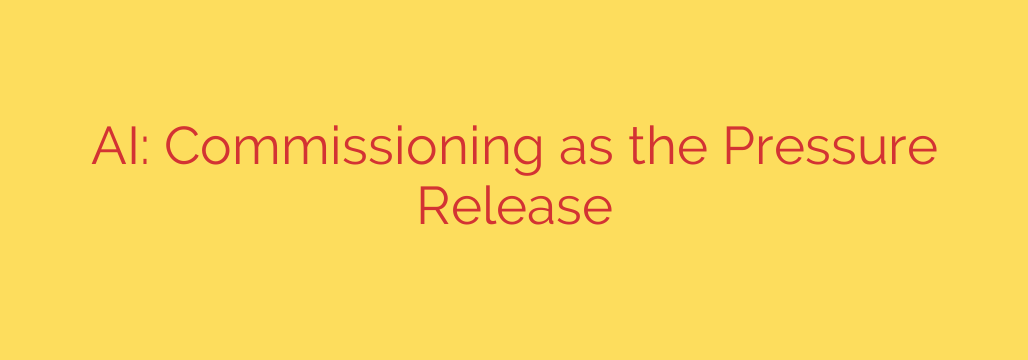
AI Commissioning: Navigating the Hype and Implementing Responsible AI
Artificial intelligence is rapidly evolving, and the pressure to implement AI solutions is mounting across industries. But diving headfirst into AI without a clear plan can lead to costly mistakes and even ethical concerns. AI Commissioning offers a structured approach to responsible AI implementation, acting as a crucial pressure release valve amidst the hype.
So, what exactly is AI Commissioning? Think of it as a rigorous, multi-faceted process designed to ensure that your AI system is safe, reliable, and effective before it’s deployed. It goes beyond simply building a model; it encompasses everything from defining clear objectives to ongoing monitoring and maintenance.
Here are key elements of a successful AI Commissioning strategy:
Define Clear Objectives: What problem are you trying to solve with AI? A well-defined objective is the foundation of a successful AI project. Avoid vague goals; instead, focus on measurable outcomes. For example, instead of “improve customer service,” aim for “reduce customer service response time by 20%.”
Data Governance is Paramount: AI models are only as good as the data they’re trained on. Ensure your data is accurate, unbiased, and representative of the population your AI system will be interacting with. This includes establishing clear data governance policies and regularly auditing your data sources.
Rigorous Testing and Validation: Before deployment, thoroughly test your AI system under various conditions. Use a combination of synthetic data, real-world data, and adversarial testing to identify potential weaknesses and biases.
Transparency and Explainability: Understand how your AI model arrives at its decisions. Implement techniques to improve explainability and ensure transparency, especially in high-stakes applications. This builds trust and allows you to identify and correct errors.
Continuous Monitoring and Improvement: AI systems are not “set and forget.” Monitor performance metrics, track data drift, and regularly retrain your models with updated data. This ensures your AI system remains effective and relevant over time.
Address Security Vulnerabilities: AI systems can be vulnerable to adversarial attacks. Implement robust security measures to protect your AI models and data from malicious actors. Regularly assess your system for potential weaknesses and patch vulnerabilities.
Ignoring AI Commissioning can lead to serious consequences, including biased outcomes, inaccurate predictions, and even reputational damage. By embracing a responsible AI implementation approach, you can harness the power of AI while mitigating potential risks.
Security Tip: When deploying AI models, be sure to restrict access based on the principle of least privilege. Only grant users the minimum level of access necessary to perform their duties. This reduces the risk of unauthorized access and modification of your AI system.
In conclusion, AI Commissioning isn’t just a best practice; it’s a necessity for organizations looking to leverage AI responsibly and effectively. By taking a proactive and structured approach, you can ensure that your AI investments deliver real value while mitigating potential risks.
Source: https://datacentrereview.com/2025/07/ai-is-the-new-oil-and-commissioning-is-the-pressure-valve/








